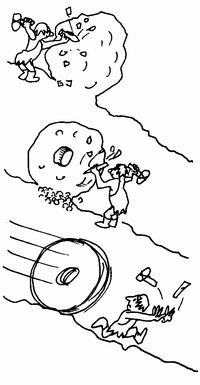Many people fear that the computer - or, more properly, information technology - will take over. In short, that instead of being our servant, technology will become our master.
Such a fear is hardly new. Mary Wollstonecraft Shelley (1797-1851), whose life spanned the early economic promise and later social threat of the industrial revolution, pinioned the fear in her most famous novel, Frankenstein, published in 1818. Its theme was simple : a creature created in the laboratory menaces both its creator and mankind.
For all the makers' boasts of their products being "user-friendly", the computer remains for most people a combination of promise and threat - a promise because it can do routine tasks rapidly, a threat because it has put people out of a job. Information technology is causing a revolution as fundamental as that caused in past epochs by steam power, electricity and the internal combustion engine.
Why do so many people fear the new information technologies, see them as a threat to civilization as we have come to know and love it ? Very largely because those technologies are still mysterious to most people, even those who use them. The scientists have invented their own jargon, much of it impenetrable.
As one expert puts it : "Typically, the technology has been introduced in such a way that planning and operating have been separated. The user is often an astonished spectator." If that view is correct, information technologists are guilty of arrogance. Not surprising, therefore, that users accuse the computer of everything from causing eyestrain to worrying incidences of cancer and miscarriages.
Historical perspective helps to explain why. The new information technologies are indeed new - not more than 15 years old in their current common form. When steam locomotion was young, engineers didn't bother to protect drivers from the elements or put the controls where they were the handiest. Rural folk accused trains of curdling milk and aborting cows. But the engineers soon learned the errors of their ways. So will designers of computers - and those that don't will pay the price. It's known as failure.
Roger Beardwood, ICC Business World
